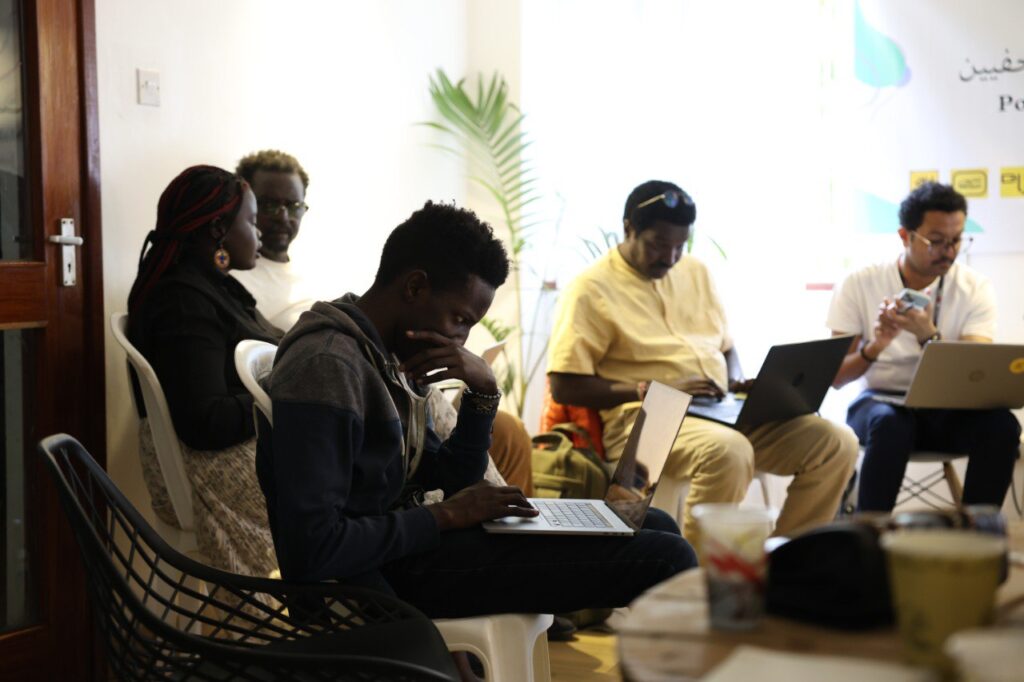
Introduction
From September 12 to 18, 2024, Echo of Justice organized a workshop on Podcast Production in Nairobi, gathering Sudanese journalists and media enthusiasts. The workshop is part of the “Transitional Justice Journalism” series initiated by Echo of Justice, aimed at equipping participants with the knowledge and tools to produce impactful media content that highlights transitional justice and human rights issues. The workshop brought together a diverse group of participants with various backgrounds in journalism and media.
Day 1: Podcast Basics and Script-writing
Session 1: Podcast Basics
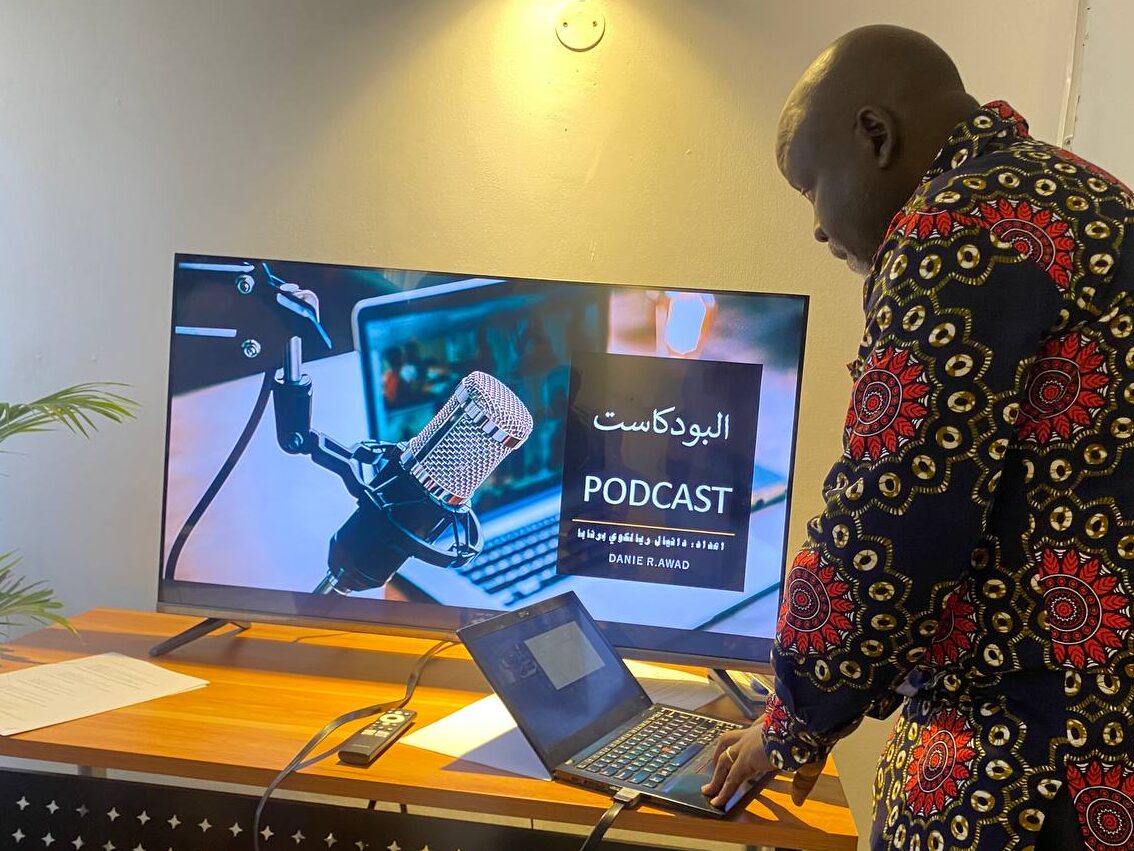
Daniel led the first session, which introduced the fundamentals of podcasting. Participants learned about different podcast formats such as interviews, conversations, and non-fiction storytelling. The session emphasized the importance of understanding the target audience and tailoring content to engage them effectively. Daniel also provided insights on how to plan a successful podcast and discussed the strategic use of hashtags to enhance podcast promotion.
Session 2: Script-writing for Podcasts
Led by Hussam Hilali in collaboration with Ater Magazine, this session focused on the importance of scripting for podcasts. It covered how to build a podcast script from the initial idea, brainstorming, outlining, and finalizing the conclusion. The session highlighted the role of sound effects and music in enriching storytelling, and participants worked in pairs to draft their podcast scripts.
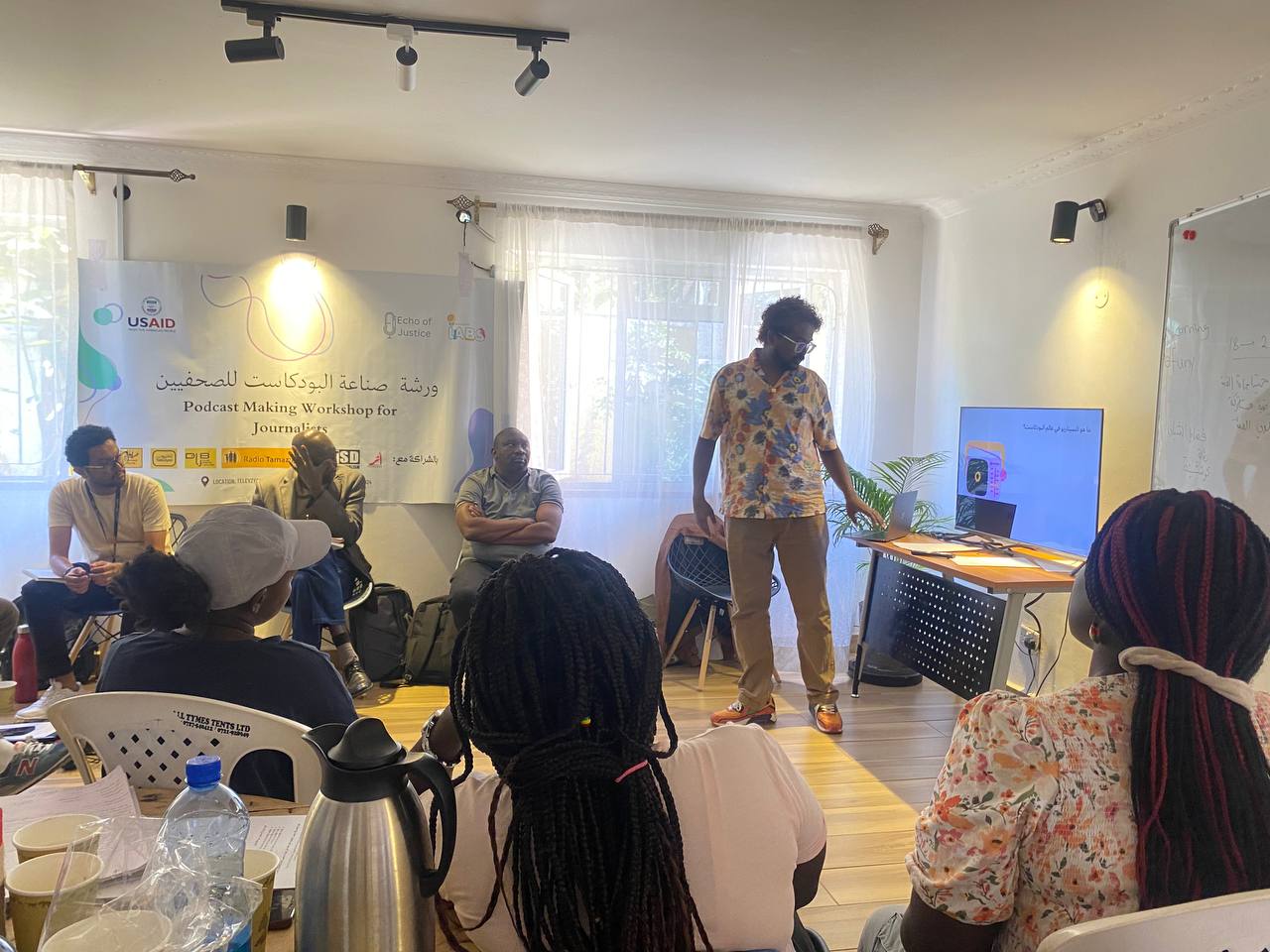
Day 2: Podcast Filming and Production
Session 1: Interview Filming Techniques
Mohamed Al-Taj facilitated a session on interview filming techniques, covering concepts like the rule of thirds and selecting the appropriate location for interviews. Participants learned about camera angles, preparation of interview questions, and conducting per-interview research to ensure meaningful conversations.
Session 2: Podcast Production
Ahmed Hikmat introduced participants to the stages of podcast production. The session covered essential equipment like microphones, soundproofing tools, and software used for recording and editing. Ahmed shared tips on enhancing sound quality, handling recording issues, and publishing podcasts via platforms using RSS feeds. Participants were also given advice on building a podcast following and maintaining content quality.
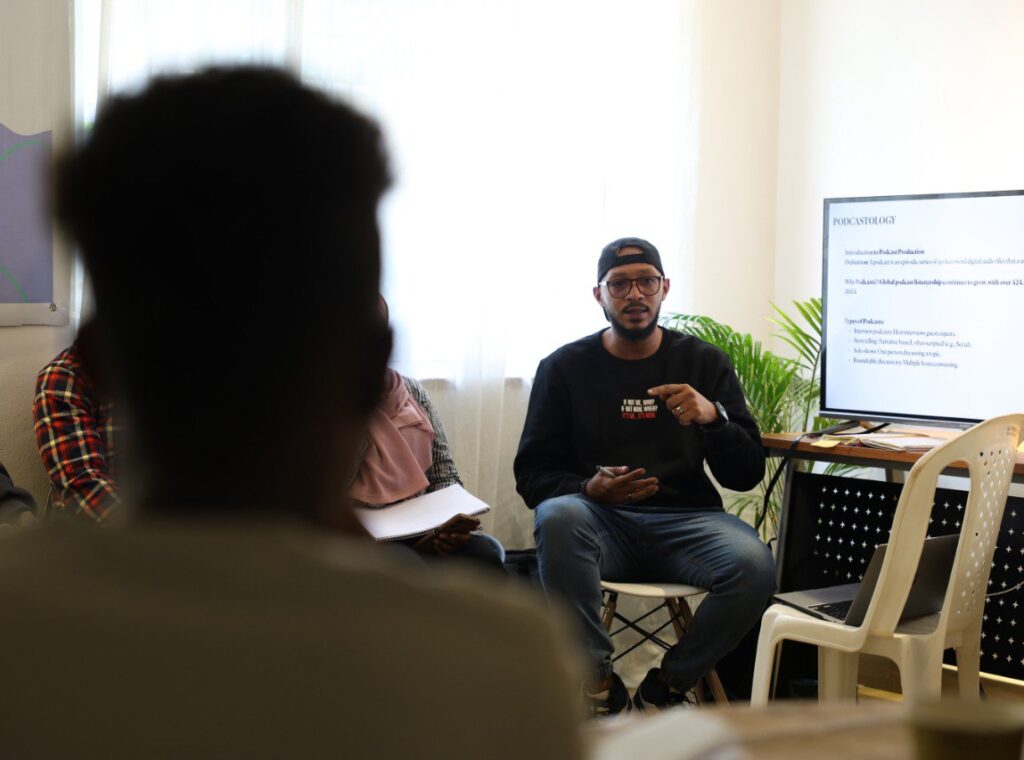
Day 3: Fake News and Journalism Ethics
Session 1: Combating Fake News

Daniel’s session on fake news delved into impact on society, especially in the Sudanese context. Participants learned how to detect and verify false information, using examples from recent events. Mohammed Azahary discussed the role of media in transitional justice, emphasizing the need for educational media content to combat fake news and support justice.
Session 2: Journalism Ethics
Another session was conducted on journalism ethics, where she discussed the responsibilities of journalists when dealing with sensitive information. She provided examples of citizen journalism, investigative reporting, and the ethical standards journalists must adhere to, ensuring credibility and integrity in their work.
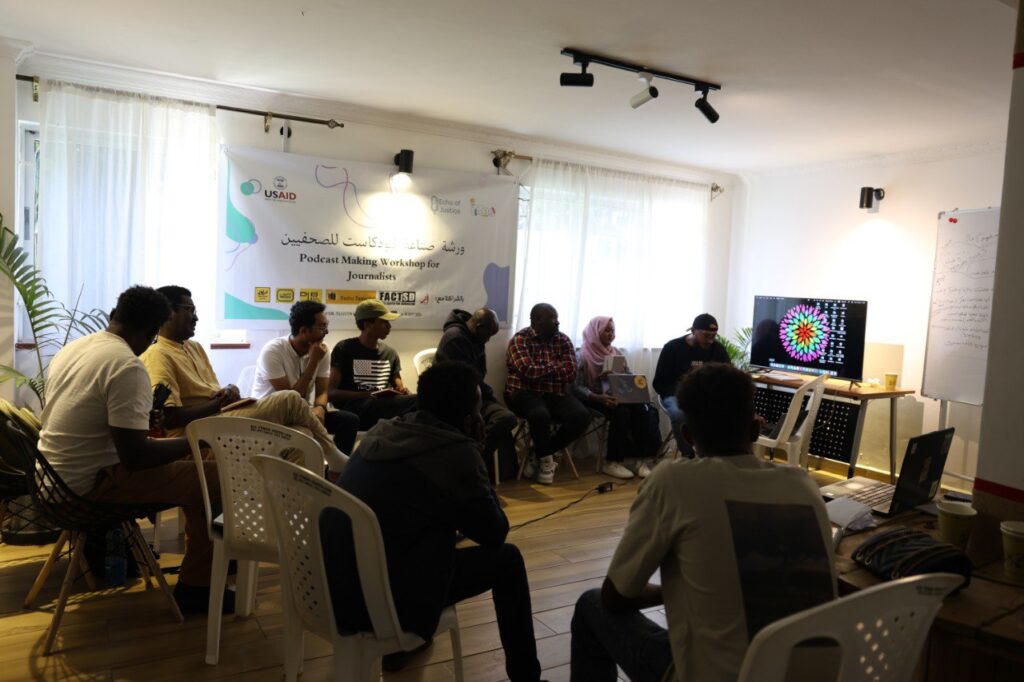
Day 4: Practical Podcast Episode Production
Day fourths, participants began applying the skills learned by producing podcast episodes on various topics. They were divided into groups to create next episodes:
- Women on Death Row (First episode of a 5-part series recorded)
- Impact of War on Youth
- Mental Health and Trauma
- Blame Not on Me: FGM and Early Marriage
- Peace and Justice (First episode of an 8-part series)
- Name and Meaning
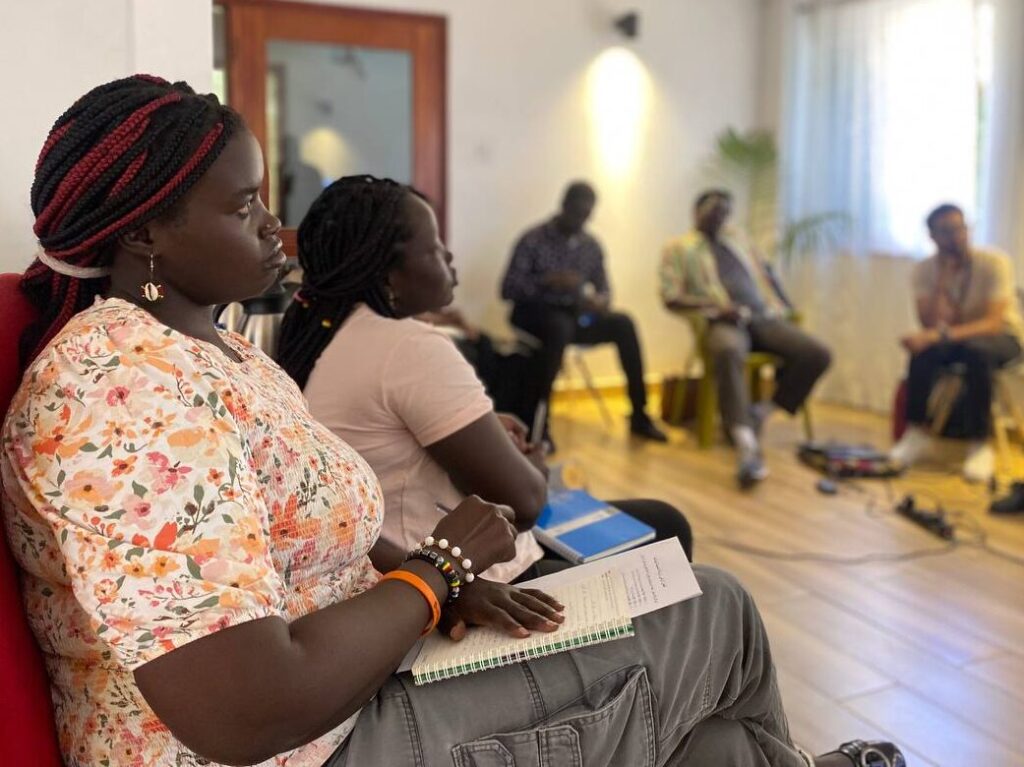
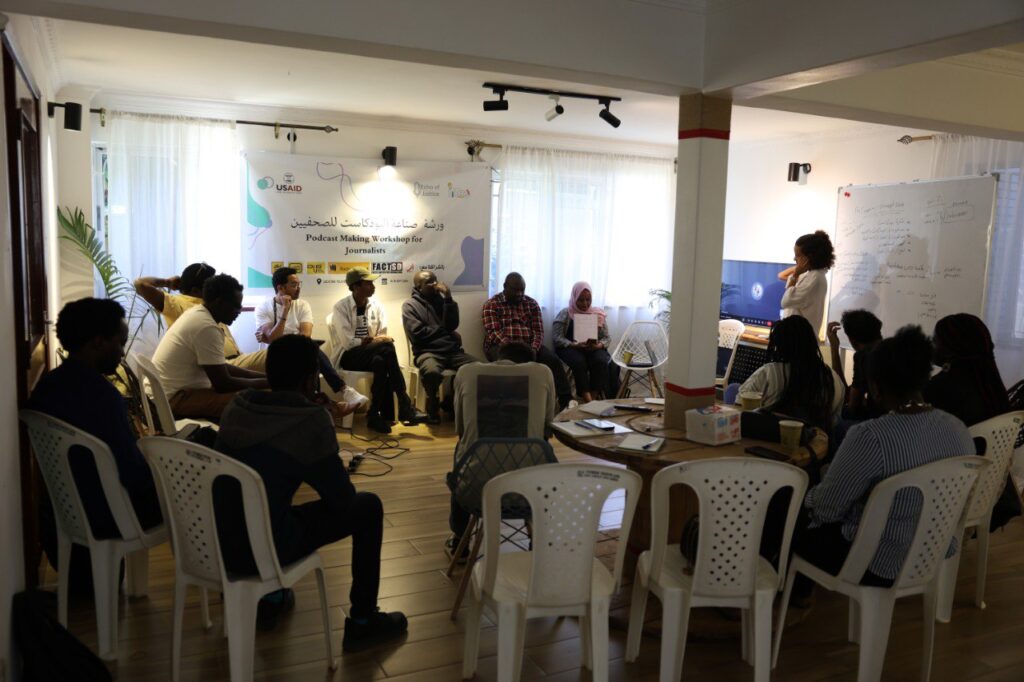
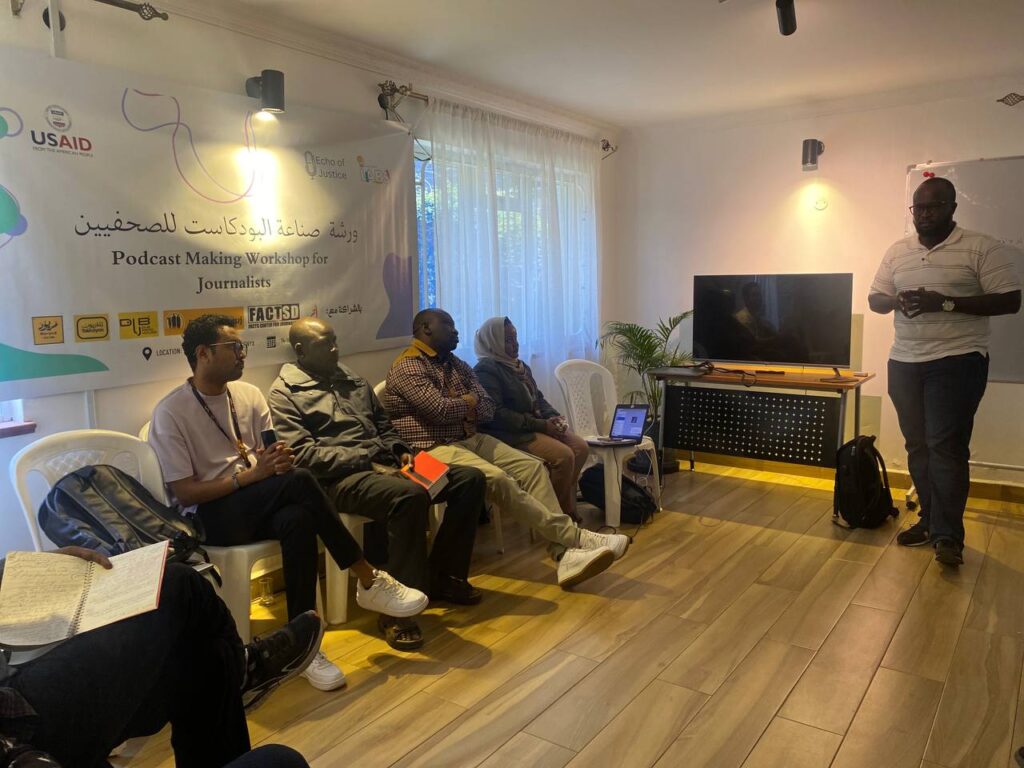
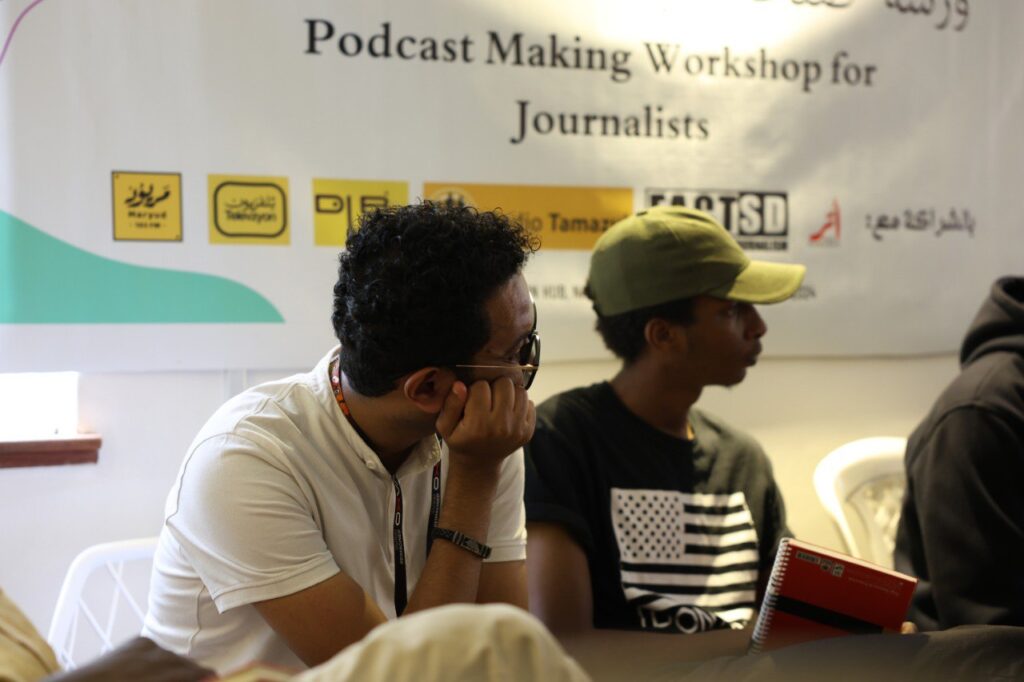
Day 5: Audience Engagement and Presentation of Results
Session 1: Audience Engagement

Sadiq Yassin led a session on how to engage podcast audiences. Participants received tips on attracting and retaining listeners through high-quality content and interaction via comments and social media. The group brainstormed strategies to increase their listener base and improve content quality.
Presentation of Results
Participants presented six podcast episodes they produced during the workshop. A studio coordinator provided feedback on production quality, and the session ended with a group discussion on the role of journalism in advancing transitional justice. Ideas and suggestions were exchanged on how the media can raise public awareness and support justice initiatives.
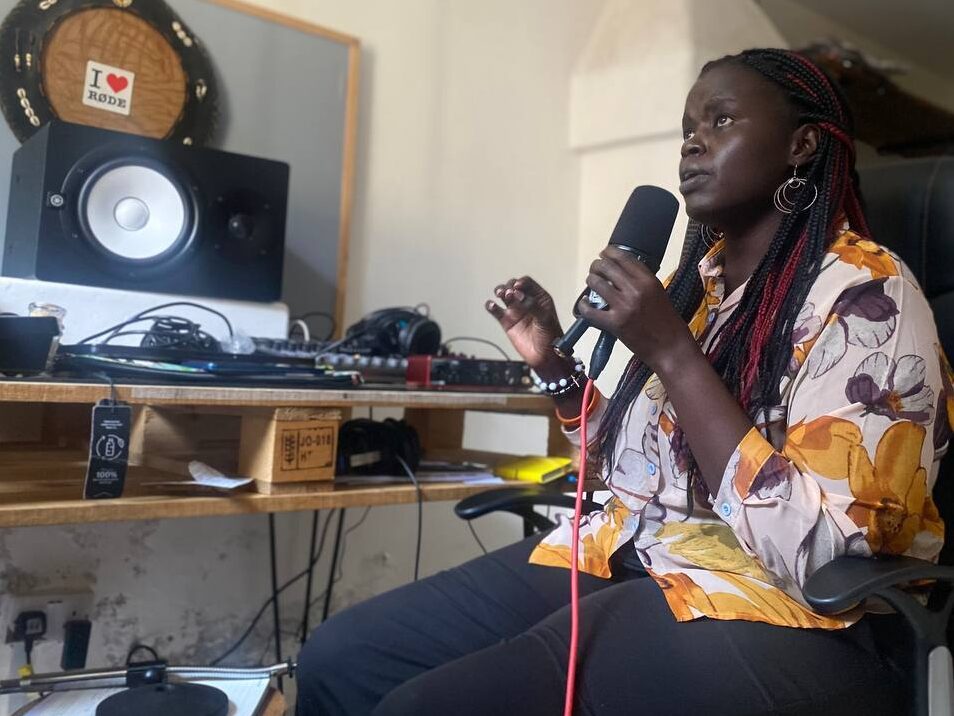
Discussion Session: The Role of Media in Transitional Justice
Key Discussion Points
- How Media Promotes Accountability and Transparency in Transitional Justice:
- Documentation and verification.
- Reporting and investigative journalism.
- Amplifying voices and reflecting local interests.
- Inclusive outreach to affected communities.
- Educating the public and creating a collective memory of past violations.
- Connecting local communities with justice processes.
- Advocating for truth and supporting truth commissions.
- Does Sudanese Media Understand Transitional Justice Properly? The collective answer was “No,” with reasons including:
- State-controlled media reflects government narratives.
- Lack of awareness of transitional justice’s importance.
- Free media is suppressed.
- Divided media landscape with biases against victims.
- State security’s control over the media limits independence.
- Absence of transitional justice coverage in media curricula.
- Challenges Facing Journalists:
- Ongoing conflict halted newspapers, leaving journalists unemployed.
- Threats to personal safety (arrest, assault, abduction, murder).
- Fragmentation within the journalism community.
- Lack of funding for independent journalism.
- Stigmatization and intimidation of journalists.
- Recommendations:
- Establishing an independent media commission.
- Supporting independent bodies that protect journalists.
- Training and capacity-building for journalists on transitional justice.
- Expanding media narratives to reach international audiences.
- Fostering collaboration between independent media institutions.
- Including transitional justice in journalism education curricula.
- Providing digital security training to protect sensitive information.
- Developing financing strategies to support independent journalism.
Workshop Outcomes
- Production of Podcasts: Participants created podcast episodes addressing transitional justice and human rights topics.
- Skills Development: Participants gained experience in writing, recording, and audio production.
- Increased Awareness: Journalists enhanced their understanding of journalism ethics and countering fake news.
- New Media Techniques: Participants learned modern digital media techniques, enabling them to effectively communicate transitional justice issues.
Next Steps
Echo of Justice offers the following support
- Assistance with Podcast Production: Continued support for producing content related to transitional justice.
- Priority for Future Workshops: Participants will receive priority in upcoming workshops.
- Partnerships: Facilitating collaborations with current and future program partners.
- Program Membership: Participants will gain access to studio spaces for producing transitional justice content.
- Ongoing Workshops and Sessions: We will continue organizing workshops focused on transitional justice mechanisms and their implementation.
